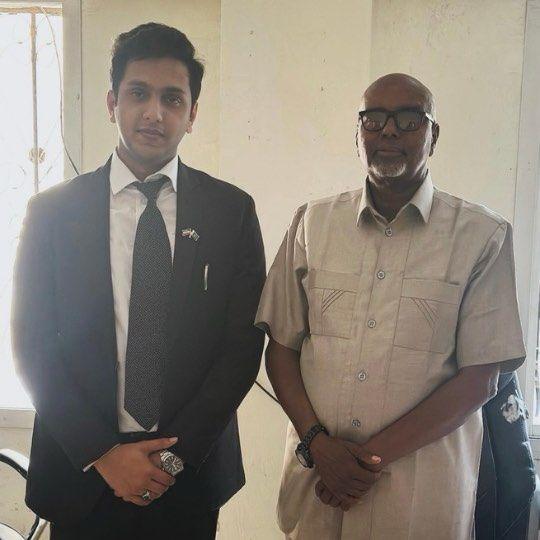By: Fatima Ghufran (Pakistan)
The tragic murder of 17-year-old acclaimed TikToker Sana Yousuf has reignited the debate around consent — a concept persistently misunderstood, misconstrued, and regularly undermined. The ink on the verdict upholding Zahir Jaffer’s death sentence is barely dry, and yet here we are again. Two women. Two murder cases. Four years apart. Their only crime? They said, “NO.”
Their deaths are part of a disturbing pattern — a culture that refuses to accept a woman’s right to say no. The pressing question remains: the law can punish a killer, but can it kill the culture that criminalizes refusal?
Yousaf was a well-known TikTok content creator with over 800,000 followers. She gained popularity through her lip-sync videos, skincare tips, and promotional content for beauty products. As the investigation unfolds, it has emerged that the case centers on what IG Islamabad Syed Ali Nasir Rizvi described as a pattern of “repeated rejections.” Speaking at a press conference alongside senior officials following the arrest of the 22-year-old prime suspect, the IG revealed that the accused would spend hours loitering outside the victim’s home despite her clear and repeated refusals to interact with him. He condemned the incident as a “gruesome and cold-blooded murder.”
The IG further elaborated that the suspect, the son of a retired grade-16 officer somehow managed to enter Sana’s house after she did not come out as agreed; an argument ensued and he shot her dead on the spot. Upon his subsequent arrest from Faisalabad through a raid, Yousuf’s mobile phone as well as the murder weapon were both recovered. Geo fencing and CCTV footage from the relevant areas also confirmed his presence.
Sana’s murder is tragically not the first of its kind. Just four years earlier, the nation was shaken by the brutal killing of Noor Mukaddam, a 27-year-old woman who was beheaded in Islamabad by a man she had repeatedly tried to distance herself from. Noor, like Sana, had said “No”. She, too, tried to walk away. And yet, her right to reject—her right to choose—was met not with respect, but with rage.
Both cases are horrifying reflections of the same deep-rooted problem: the cultural criminalisation of refusal. The men in both stories could not accept rejection, and that refusal to accept “no” culminated in fatal violence. These weren’t isolated incidents—they were symptoms of a larger epidemic: where consent is negotiable, and women’s autonomy is treated as an affront.
While organizations like the National Commission on the Status of Women (NCSW), the legal community, celebrities as well as social influencers have condemned the incident and called for independent investigations, these efforts continue to exist alongside a deeply entrenched culture of victim blaming. Character assassination often follows such crimes, with questions aimed not at the perpetrator, but at the victim: “Did she not know what she was getting into?” or “If she was in a relationship, wasn’t this inevitable?” The same rhetoric surfaced during the Mukaddam trial, where the focus repeatedly shifted from the brutality of the crime to the perceived choices of the victim.
This is where disconnect between the legislative intent and the culture becomes most dangerous—the law may exist to protect women, but culture often rises to protect their killers. Legal provisions—from the Protection Against Harassment of Women at the Workplace Act, 2010 to sections of the Pakistan Penal Code addressing criminal intimidation (Section 503), assault (Sections 351–354), and stalking—do offer clear protections on paper. But in practice, victims are still made to prove not just that a crime occurred, but that they are “worthy” of being protected. Their clothing, relationships, social media presence—even the tone of their refusal—become part of a public trial. When justice demands moral purity from the victim and explains away rage in the perpetrator, “no” becomes negotiable—and the law becomes performative.
While the judiciary and police have demonstrated a progressive stance in holding perpetrators accountable in these two cases, it is important to recognize that both were highly publicized. Noor Mukaddam’s father’s diplomatic and Sana Yousuf’s celebrity status amplified media attention and public scrutiny. This raises a critical question: Would justice have been served with the same urgency and severity if the victims had not been in the public eye?
At this point, it is important to highlight a troubling trend in Pakistani dramas, where male leads often take personal offense when the heroine rejects their advances or does not reciprocate their feelings. These characters are frequently portrayed resorting to violence, stalking, intimidation, and even kidnapping. Such narratives must stop, as they reinforce a culture in which saying “no”—especially from a woman—is treated as a crime or provocation. What makes this especially alarming is that these dramas air on widely viewed channels during peak hours, shaping the perceptions of vulnerable audiences. This content risks normalizing harmful behaviors, sending a dangerous message to impressionable young viewers that stalking or threatening someone for rejecting romantic interest is acceptable.
The painful question remains: even after justice has been served in Noor Mukaddam’s case and the prime suspect in Sana Yousuf’s murder has been caught, will Noor and Sana ever truly return to their families? Will their loved ones ever hear their voices again, or will their memories forever be overshadowed by the image of their daughters’ lifeless, brutally taken faces? These young women had entire lives ahead of them — dreams, passions, and futures stolen simply because they dared to say “No.”
And even if these victims made mistakes—who are we to judge them? Does questioning their choices ever justify their deaths? Simply because we might not have made the same decisions does not give anyone the right to assassinate their character. Absolutely not. No one has the license to punish refusal, to destroy lives, or to silence voices under the pretense of personal grievance.
So what use is justice to those who are gone? The real challenge lies not just in court verdicts, but in uprooting the toxic mindset that criminalizes consent and treats “No” as a foreign concept. Because “No” is a complete sentence — it needs no explanation, no justification, and certainly no punishment.






This Post Has One Comment
Assalam o Alaikum
Most Respectful Ms. Advocate,
Nice views expressed by you! It is famous in every mind “Law is Blind”, need to change this theory.
Our culture for Justice is very slow which moves towards crimes. Judges should have take responsibility in the matter.
Kindly raise this main issue “Justice”.
I once again appreciate your precious thoughts. Keep it up!!